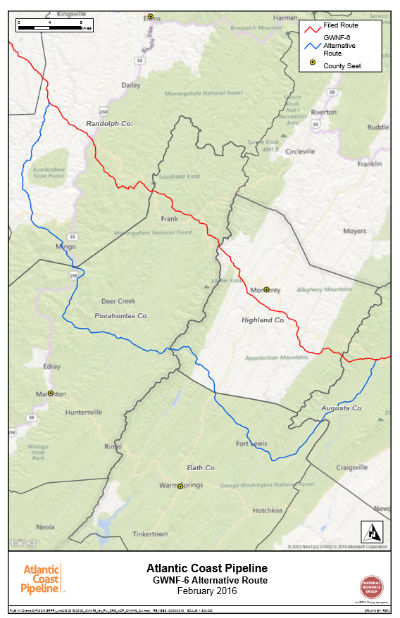
As a result of these extensive consultations, next week Atlantic will formally adopt an alternative route that officials believe will meet the Forest Service’s requirements and provide a viable path forward for the project, according to a press release on Friday.
Finding a viable route through the national forests is an important milestone for the project and would allow the Federal Energy Regulatory Commission (FERC) to continue its environmental review.
The alternative route was selected to avoid Cheat Mountain and Shenandoah Mountain because of certain species that inhabit those areas, as specifically requested by the Forest Service. The route will reduce total mileage in the national forests by more than one-third, from 28.8 miles to 18.5 miles.
The alternative route will impact approximately 249 new landowners in Randolph and Pocahontas counties in West Virginia, and Highland, Bath and Augusta counties in Virginia. The alternative route will add approximately 30 miles to the total length of the project.
Atlantic is contacting landowners along the alternative route to request permission to survey their properties so the route can be thoroughly evaluated. Atlantic will submit a preliminary analysis of the route to the FERC next week, and plans to hold a series of public informational open houses along the route in early March.










